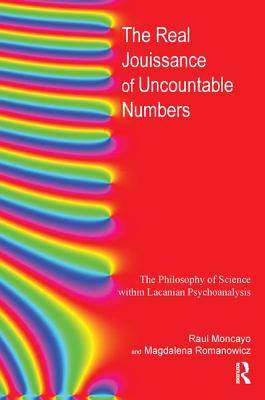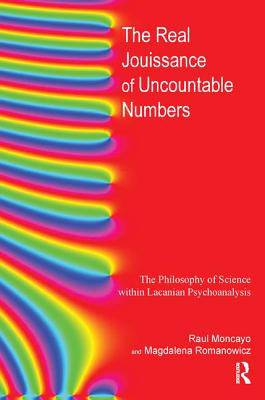
- Afhalen na 1 uur in een winkel met voorraad
- Gratis thuislevering in België vanaf € 30
- Ruim aanbod met 7 miljoen producten
- Afhalen na 1 uur in een winkel met voorraad
- Gratis thuislevering in België vanaf € 30
- Ruim aanbod met 7 miljoen producten
The Real Jouissance of Uncountable Numbers
The Philosophy of Science Within Lacanian Psychoanalysis
Raul Moncayo, Magdalena RomanowiczOmschrijving
Lacan critiqued imaginary intuition for confusing direct perception with unconscious pre-conceptions about people and the world. The emphasis on description goes hand in hand with a rejection of theory and the science of the unconscious and a belief in the naive self-transparency of the world. At the same time, knowing in and of the Real requires a place beyond thinking, multi-valued forms of logic, mathematical equations, and different conceptions of causality, acausality, and chance. This book explores some of the mathematical problems raised by Lacan's use of numbers and the interconnection between mathematics and psychoanalytic ideas. Within any system, mathematical or otherwise, there are holes, or acausal cores and remainders of indecidability. It is this senseless point of non-knowledge that makes change, and the emergence of the new, possible within a system.
Specificaties
Betrokkenen
- Auteur(s):
- Uitgeverij:
Inhoud
- Aantal bladzijden:
- 236
- Taal:
- Engels
Eigenschappen
- Productcode (EAN):
- 9781782201717
- Verschijningsdatum:
- 31/03/2015
- Uitvoering:
- Paperback
- Formaat:
- Trade paperback (VS)
- Afmetingen:
- 150 mm x 226 mm
- Gewicht:
- 317 g

Alleen bij Standaard Boekhandel
Beoordelingen
We publiceren alleen reviews die voldoen aan de voorwaarden voor reviews. Bekijk onze voorwaarden voor reviews.











